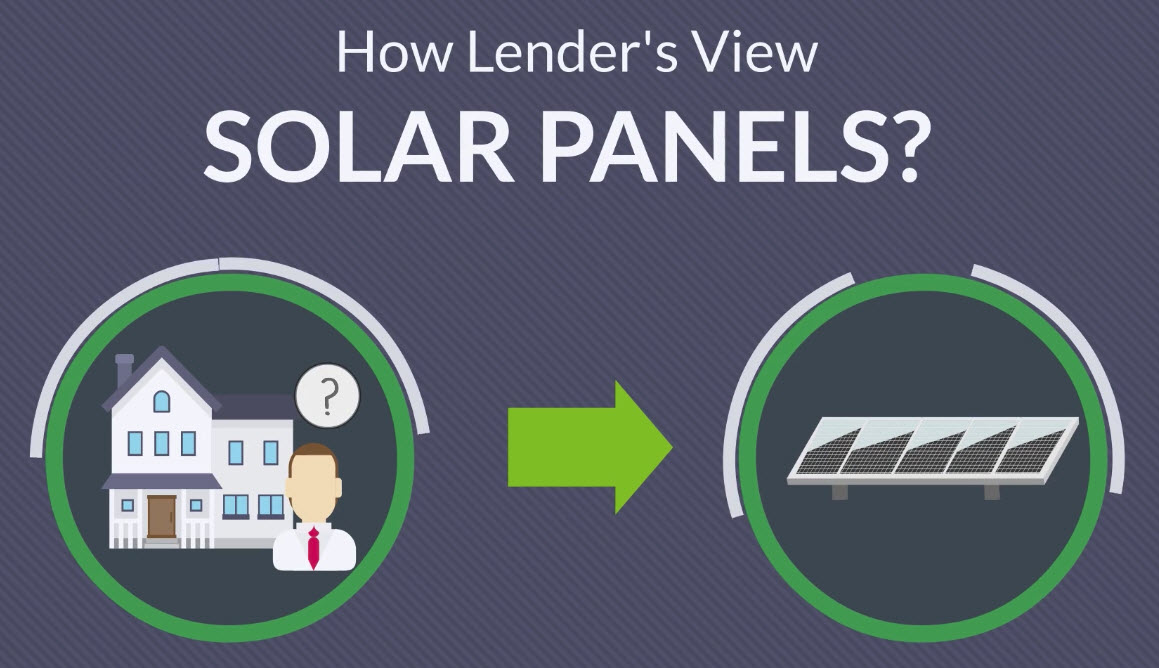
How do Solar Panels affect the mortgage and closing process?
05-20-2019About MortgagesEddie KnoellIn this episode, we covered solar panels and how borrowers should view them when looking to buy.
How do lenders view solar panels? Are they even allowed?
Yes, in most cases, solar panels are allowed. When we do the loan, we want to make sure that the buyer gets a copy of the solar agreement that the owner has, we want to make sure that there is a warranty against all malfunctions and defects, and we want to make sure that the lease is transferable to our buyer regardless of whether the solar panels are leased or owned.
In someone’s solar panels are leased, they have to be transferred by the owner (a company such as Solar City) to the new buyer. But, if they are owned outright then there’s no loan and they are treated as a part of the real estate, a fixture of the property. However, if there’s a loan on there, that loan itself goes with the property as a lien, and it must be transferable to the new buyer.
One other thing to expect is that the solar company may do a credit check. That being said, there’s likely a higher threshold for qualifying for buying a house than for a solar lease, so this shouldn’t be too much of a concern.
How do solar panels impact value?
If the panels are leased, appraisers will not count value. The reason for this is that the appraisal and the guidelines that came out by the institutions like Fannie Mae and Freddie Mac, the FHA, and the VA, view ownership of the panels means that you actually need to own the asset. If the solar panels are actually owned, rather than leased, you’re going to see a value adjustment on the appraisal, though you shouldn’t expect too much of a bump. If you spent $20,000 on your system, you might only see a $5000 adjustment. And in some cases, they don’t even show up if the comparable sales in the neighborhood don’t demonstrate that solar panels give value.
How do solar panel payments potentially affect qualifications?
If there is a production guarantee in your lease agreement or the ownership agreement, the lender will not count the loan payment or the lease payment against you. In many cases, there’s a production guarantee which is when a solar company says, “If your solar system doesn’t produce so many kilowatts an hour for so many months, we’ll refund you.” This is one of the ways they justify being able to install the system while also protecting the borrower because if the borrower buys the system it’s their responsibility if something goes wrong with the cells or if they are defective.
One other thing to be aware of is not only are you going to be paying APS and SRP, the bill, but also, you’ll be paying this extra loan payment. So this warranty of a minimum guarantee will help.
As well, when we close the loan, if there is a lien right from the loan or a lease, the title company is going to be required to release that lien before we put our lien on. They want to release the lien of the solar company, and then put that back on afterward. Sometimes there is a modest fee associated with this and sometimes there’s no fee at all, but it’s a process that needs to be done, and the real estate agents, buyers, and everyone, by the end of the transaction, will be very familiar with how that all works.
If you have any questions about this or if you have any questions you’d like us to answer on our podcast, you can email your questions to team@azmortgagebrothers.com or give us a call at (602) 535-2171. Be sure to ask us for a free quote on your next mortgage. We’ll personally work with you and help you through the whole process.
•••
Thanks for listening and reading the Mortgage Brothers Show. Let us know if you have any questions you’d like us to answer on this podcast. You can email your questions to Tom@AZMortgageBrothers.com or Eddie@AZMortgageBrothers.com.
Be sure to ask us for a free quote on your next mortgage. We’ll personally work with you and help you through the whole process.
Signature Home Loans LLC does not provide tax, legal, or accounting advice. This material has been prepared for informational purposes only. You should consult your own tax, legal, and accounting advisors before engaging in any transaction. Signature Home Loans NMLS 1007154, NMLS #210917 and 1618695. Equal housing lender.
BACK TO LIST